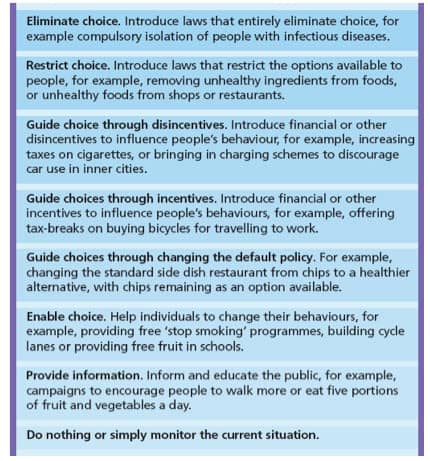New Alcohol Health Alliance and Nuffield Council on Bioethics both call for tougher measures on alcohol
A new coalition launched this week is calling on the
Government to do more to prevent the rise in alcohol-related diseases.
The Alcohol Health Alliance UK is a ground-breaking coalition of 24
organisations, including the Institute of Alcohol Studies, headed by the
Royal College of Physicians. Its mission is to reduce the damage caused
to health by alcohol misuse and who will work together to:
- Highlight the rising levels of alcohol-related health harm
- Propose evidence-based solutions to reduce this harm
- Influence decision makers to take positive action to address the damage caused by alcohol misuse
On the same day, the Nuffield Council on Bioethics
launched a report on ethical issues in public health. The report
considers the responsibilities of governments, individuals and others in
promoting the health of the population. They conclude that the state
has a duty to help everyone lead a healthy life and reduce inequalities
in health. Their ‘stewardship model’ sets out guiding principles for
making decisions about public health policies. An ‘intervention ladder’
provides a way of thinking about the acceptability of different public
health measures. Four case studies, including alcohol, were used to test
the ethical principles. Their recommendations on alcohol were:
- The Government should implement tougher measures to
tackle excessive alcohol consumption, such as increasing tax on alcohol
and restricting hours of sale. - Producers, advertisers and sellers of alcohol should
take more responsibility for preventing harm to health. They should not
understate the risks, or exploit the desirability of drinking,
especially to young people.
The Alcohol Health Alliance UK will campaign for:
- Dedicated funding for alcohol treatment and prevention strategies
- Increased taxation on alcohol
- A ban on alcohol advertising before 9.00 pm and in cinemas apart from 18 rated films
- Promotional material to carry information on health related harm
- The drink driving limit to be reduced to the EU standard of 0.5g/l and a near zero limit for new drivers
Nuffield’s Stewardship Model
The Nuffield report proposes a ‘stewardship model’ that
outlines the appropriate goals and constraints of public health
measures. Acceptable public health goals include:
- reducing the risks of ill health that people are exposed
to as a result of other people’s actions or behaviours, for example
reducing drink-driving and passive smoking; - reducing causes of ill health relating to environmental conditions, such as drinking water safety and housing standards;
- protecting and promoting of the health of children and other vulnerable people;
- helping people to overcome addictions and other unhealthy behaviours;
- ensuring that it is easy for people to lead a healthy
life, for example by providing convenient and safe opportunities for
exercise; - ensuring that people have appropriate access to medical services; and
- reducing unfair health inequalities.
At the same time, public health programmes should:
- not attempt to coerce adults to lead healthy lives;
- minimise interventions that are introduced without
individual consent of those affected, or without procedural justice
arrangements (such as democratic decision making procedures) which
provide adequate mandate; - seek to minimise interventions that are perceived as unduly intrusive and in conflict with important personal values.
The Intervention Ladder
We propose the ‘intervention ladder’ as a useful way of
thinking about the acceptability and justification of different public
health policies. Interventions that are higher up the ladder are more
intrusive and therefore require a stronger justification:

